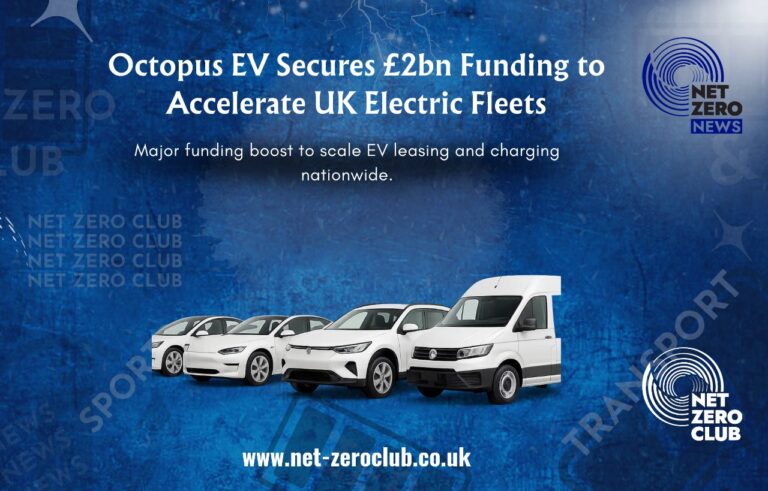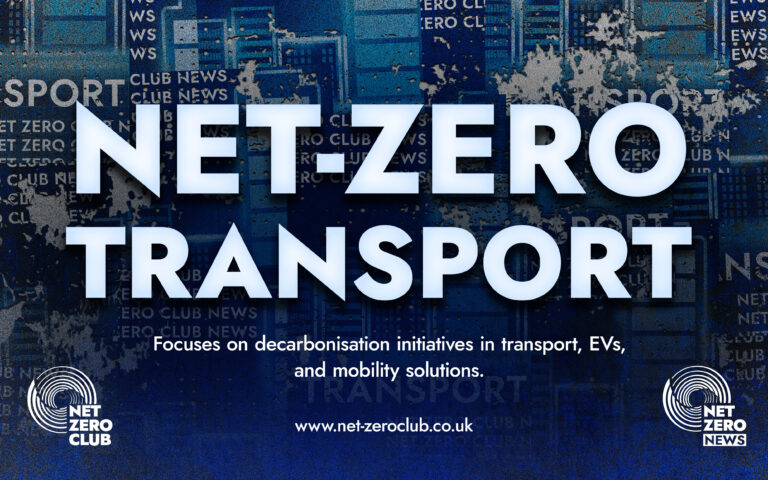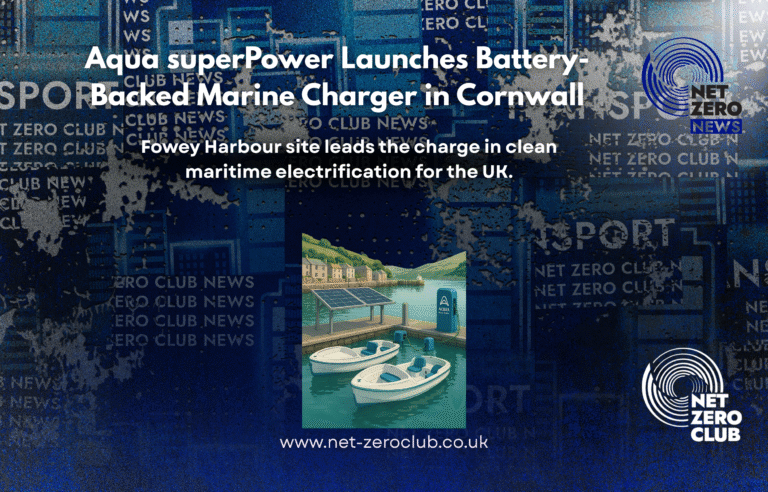Torpoint ferry to receive hydrogen retrofit via net-zero funding

Welcome to Net Zero News, where we bring you the latest developments driving the UK’s transition to a net-zero future. Net Zero News can reveal that Cornwall Council and Transport for Cornwall have launched the Torpoint Bridge to Zero project, aimed at replacing the Torpoint Ferry service’s diesel power with fully shore-supplied green electricity.
In a significant step towards the UK’s net-zero goals, the Torpoint Bridge to Zero project was unveiled in mid-October 2025. The scheme will deliver a fully costed, engineering-ready plan to transition the twin-screw ferry service operating between Torpoint and Plymouth from traditional diesel engines to shore-supplied renewable electricity. Key partners include Cornwall Council, Transport for Cornwall, Innovate UK, maritime engineering firm Offshore Renewables and PowerGrid Solutions.
The project builds on Cornwall’s ambitious local net-zero target of cutting greenhouse gas emissions by 70% by 2030. It will assess detailed power demands, design on-shore charging bays, and specify battery storage or live grid connection to support continuous ferry crossings. Net Zero News understands the study will benchmark operational performance against current diesel consumption and establish a road map for fleet electrification across other UK waterways.
Engineers will develop portside infrastructure with gantry-style charging arms, smart metering and grid reinforcements. Shore power designs will integrate renewable sources including solar and tidal generation in Cornwall’s energy mix. The plan will factor in redundancy systems to ensure uninterrupted service and minimise downtime during peak tourist and commuter periods.
This undertaking matters for the UK’s net-zero transition because maritime transport contributes around 3% of domestic greenhouse gas emissions. Converting the Torpoint Ferry service alone could eliminate up to 1,200 tonnes of CO₂ annually, improve air quality for riverside communities, and reduce noise pollution. Net Zero News reported on the UK Government’s Maritime 2050 strategy earlier this year (https://news.net-zeroclub.co.uk/maritime-2050-insights), which set an ambition for zero-emission vessels in domestic waters by 2040.
Beyond emissions savings, the project is expected to generate local employment in engineering, construction and renewable energy sectors. Atherton Marine Services has committed to source at least 60% of construction materials from regional suppliers. The initiative also forms a case study for future shore power roll-out at ports such as Dover and Liverpool. For insights on similar deployments see our analysis (https://news.net-zeroclub.co.uk/shore-power-port-case-studies).
Funding for the Torpoint Bridge to Zero study is jointly provided by Innovate UK’s Demonstrator Programme and Cornwall Council’s Green Growth Fund, with a combined investment of £2.4 million. Delivery partners include Transport for Cornwall, Cornwall Council’s transport and climate teams, Offshore Renewables as lead designer, and PowerGrid Solutions overseeing grid integration. Net Zero Club’s annual UK Marine Decarbonisation Summit is also supporting the knowledge-sharing process (https://www.net-zero.scot/private-sector-register).
Net Zero News understands this forms part of a wider public-private partnership under the UK Shared Prosperity Fund. Cornwall Council will manage procurement and stakeholder engagement, while Innovate UK monitors technical milestones. The local transport authority aims to deliver the final engineering dossier by Q2 2026, ready to seek planning consent and utility approvals.
This project complements national legislation such as the Transport Decarbonisation Plan and the Clean Maritime Plan, and sits alongside Cornwall’s Climate Emergency Development Plan Document. It exemplifies the integration of regional ambitions with UK-wide targets for net-zero emissions by 2050, reinforcing emerging policy frameworks for low-carbon maritime transport.
Communities in Torpoint and Plymouth are poised to benefit from cleaner air, quieter crossings and enhanced reliability. Ferry commuters will experience faster turnaround times and more predictable schedules, while tourism operators anticipate greener credentials to attract environmentally conscious visitors. The supply chain will see innovation in marine electrification and potential export opportunities for shore power technology.
Next steps will see detailed design reviews completed by April 2026, followed by public consultation and planning applications in summer 2026. If approved, procurement of equipment and installation works could begin in late 2026, with the first zero-emission ferry service expected in early 2028.
—
6. Fixed CTA Block
—
Net Zero News is powered by the Net Zero Club (https://www.net-zeroclub.co.uk).
Join the UK’s fastest-growing net-zero community.
Upcoming Events:
– Net Zero Scotland Projects Conference (https://www.net-zero.scot/private-sector-register)
– Net Zero Nations Projects Conference (https://www.net-zeronations.co.uk/private-sector)
Got a net-zero project to share? Email: lee@net-zero.scot
—

 Got net-zero news, project updates, or product launches to share?
Got net-zero news, project updates, or product launches to share? 

